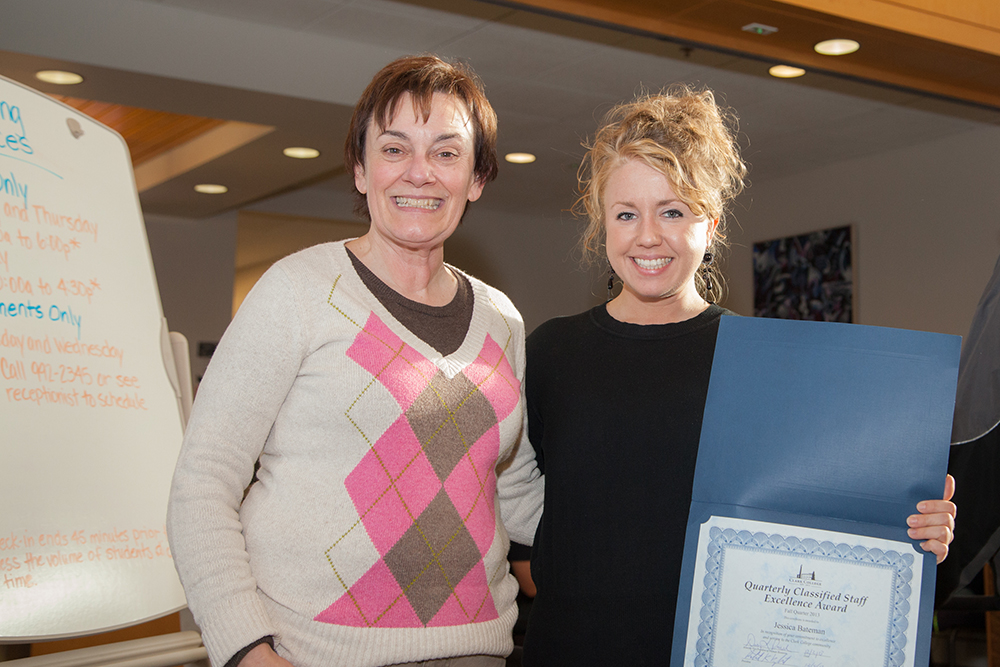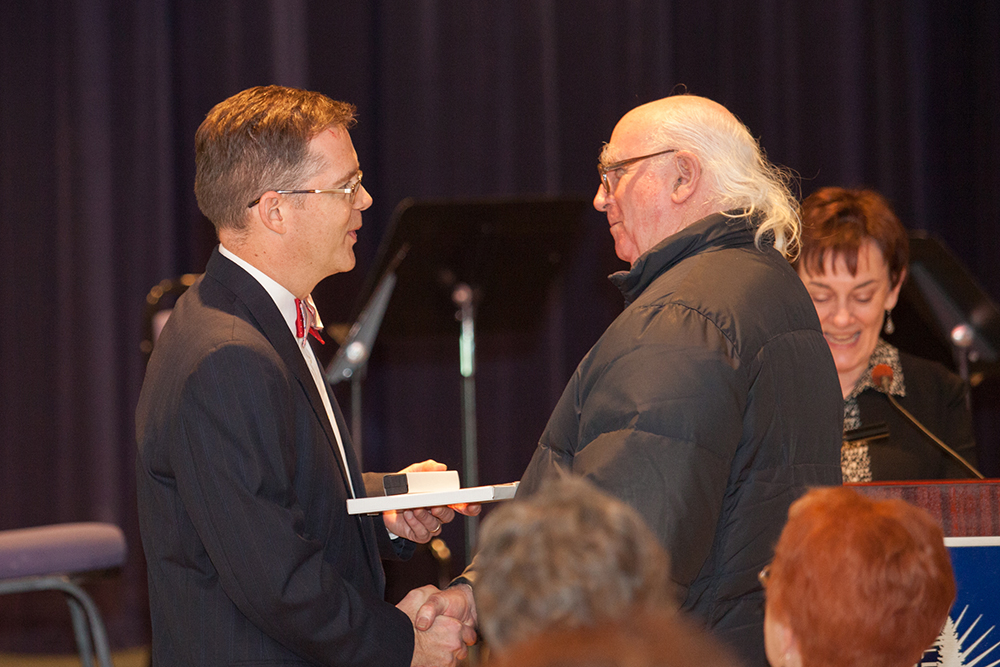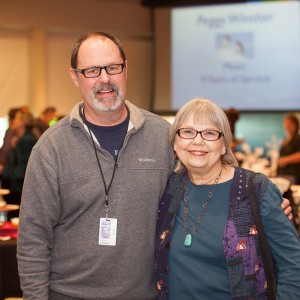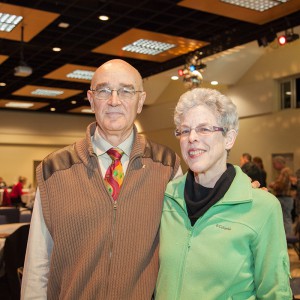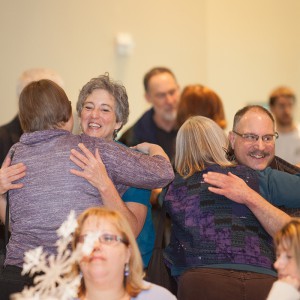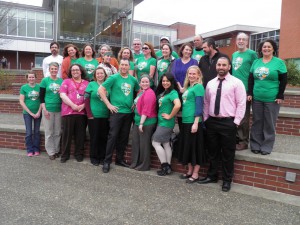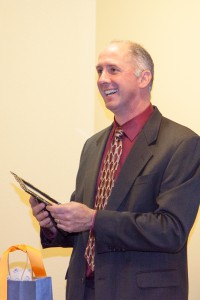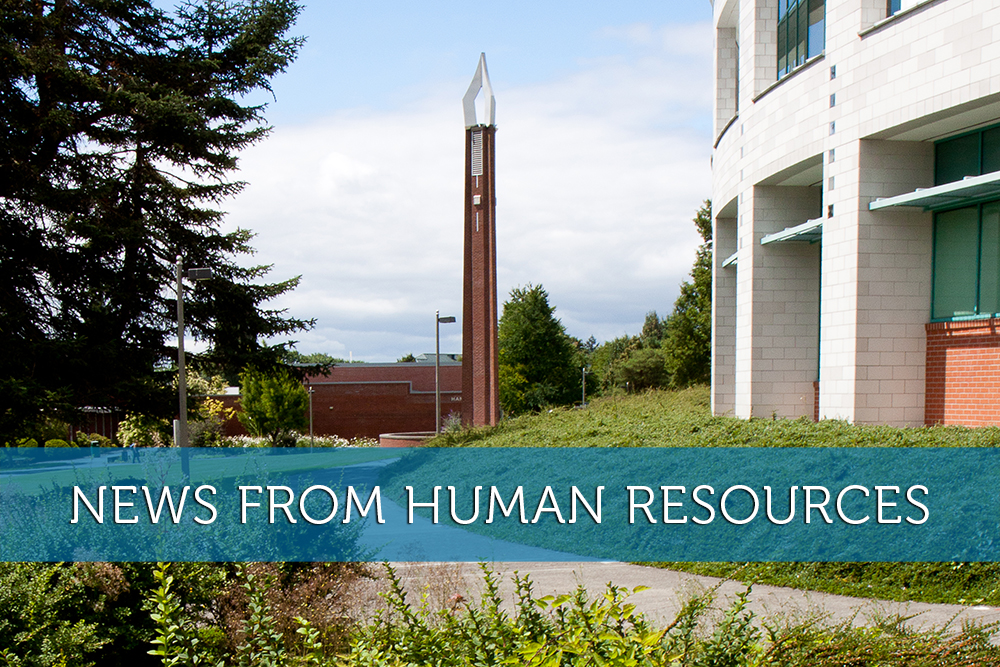
ATTENTION ALL MEDICAL AND DENTAL BENEFIT-ELIGIBLE EMPLOYEES: OPEN ENROLLMENT BEGINS NOVEMBER 1, 2013, AND ENDS ON NOVEMBER 30, 2013.
THIS IS YOUR OPPORTUNITY TO MAKE CHANGES WHICH WILL BE EFFECTIVE JANUARY 1, 2014.
The HCA “For Your Benefit” newsletter about Open Enrollment can be viewed electronically at: October 2013 For Your Benefit
The PEBB Health Care Authority website provides many links to information: Health Care Authority Home Page
What’s Changing in 2014: Changes for 2014
Effective July 1, 2014, surcharges will be added to some employees’ monthly premiums:
The new state budget, signed into law June 30, 2013, included several changes related to Public Employees Benefits Board (PEBB) benefits. The budget included two new surcharges:
- A $25-per-month surcharge to premiums for employees and enrolled family members who use tobacco products, and
- A $50-per-month surcharge to premiums for members who cover a spouse or domestic partner where the spouse or domestic partner has chosen not to enroll in other employer-based group health insurance that has an actuarial value of not less than 95 percent of the actuarial value of the PEBB plan with the largest enrollment.
Message from Health Care Authority: “PEBB continues to receive questions about the spouse and tobacco surcharges that will begin in July of 2014. We appreciate your questions and understand that there are concerns about how the surcharges could affect you and your family. Because the surcharges have so many potential impacts, we are working to ensure we’ve considered all aspects in member feedback as part of our decision-making process.”
Please visit PEBB’s website to see current information on the status of the surcharges: Surcharges
At this time, PEBB has not determined if employees will be given an opportunity to make changes before the surcharges start in July.
For those employees who believe the $50 surcharge may affect their monthly premiums, you may want to determine if the coverage your spouse carries will allow changes when your premiums are affected in July.
If you do not wish to change your current medical or dental plans, and you not want to enroll in a FSA or DCAP Plan for 2014, you do not need to do anything, but it is recommended that you review your online account information to verify its accuracy.
Go to the PEBB website and select My Account on the left side of the page. (If you haven’t registered yet through PEBB’s upgraded system, select Register under New User.) Input your email address and password. You’ll see which plans you currently have and family members enrolled on your account.
YOU CAN MAKE THE FOLLOWING CHANGES DURING OPEN ENROLLMENT:
- CHANGE MEDICAL OR DENTAL PLANS. If you are considering changing dental plans, be very certain your dentist will be available to you in the new plan. We recommend contacting the plan for confirmation. Plan customer service information is available at the HCA website: Medical Dental Plan Contact Information
- ENROLL, IF YOU HAD PREVIOUSLY WAIVED COVERAGE
- WAIVE MEDICAL COVERAGE, IF YOU HAVE OTHER COMPREHENSIVE GROUP MEDICAL COVERAGE (Coverage through the Health Benefits Exchange is not considered group coverage)
- ADD ELIGIBLE FAMILY MEMBERS WITHOUT PROOF OF LOSS OF OTHER COVERAGE
- Dependent Verification documents are required if the dependent was not previously verified.
- Dependent children are not required to be enrolled in school to be covered up to age 26.
- REMOVE FAMILY MEMBERS
- CHANGE MEDICAL INSURANCE PREMIUM DEDUCTIONS TO PRE-TAX OR POST-TAX (IRC Section 125)
- RE-ENROLL / ENROLL IN FLEXIBLE SPENDING (to continue participation in FSA, you must re-enroll every year)
- RE-ENROLL / ENROLL IN DEPENDENT CARE ASSISTANCE PROGRAM (to continue participation in DCAP, you must re-enroll every year)
MONTHLY MEDICAL INSURANCE PREMIUMS FOR 2014:
Additional surcharges will be added to some employees’ monthly premiums effective July 1, 2014 (see information above)
HOW TO MAKE CHANGES IN MEDICAL/DENTAL COVERAGE
1) To make changes online: Go to the PEBB website and select My Account on the left side of the page. (If you haven’t registered yet through PEBB’s upgraded system, select Register under New User.) Input your email address and password. You’ll see which plans you currently have and family members enrolled on your account. You can change medical and dental plans, waive medical coverage (if you have other comprehensive group medical coverage), or remove family members. We suggest you print the confirmation page when you’re done for your own records and check back a few days later to be sure you got the coverage you want.
2) Complete the hardcopy 2014 Employee Enrollment/Change form and submit this to Human Resources by 11-30-13.
To obtain a hardcopy form:
a) Go to the HCA website, complete the form, print it off, sign and submit to HR http: 2014 Employee Enrollment Change, or
b) Pick up a form at the Clark College Human Resources Office (x2105)
If dependent verification documents are required, review the list of valid verification documents: Dependent Verification Documentation
PEBB’s CDHPs (High Deductible Plans) for 2014
The PEBB Program offers consumer-directed health plans (CDHP) with a health savings account (HSA) through Group Health, Kaiser Permanente, and the Uniform Medical Plan (UMP).
If you are currently enrolled in a CDHP or are considering enrolling in a CDHP for 2014, here are a few reminders:
- The CDHP has a lower monthly premium balanced with higher annual deductibles and higher out-of-pocket maximums.
- To enroll in a CDHP, you must meet the eligibility requirements of the HSA.
- The maximum contribution to the HSA for 2014 is $3,300 for an individual and $6,550 for an employee with one or more family members on the account. Employees ages 55 or older may contribute up to $1,000 more annually.
− Your employer contributes $58.34 per month ($700.08 per year) if you are enrolled as an individual and $116.67 per month ($1,400.04 per year) if you are enrolled with one or more family members.
− You may also make contributions through payroll deduction (if your employer offers payroll deduction) or make a deposit directly into the HSA.
− When you calculate your contribution for the year, please include both the employer contribution and your individual contribution. Verify that you’re not exceeding the maximum contribution allowed for the year. The Employee Authorization for Payroll Deduction to Health Savings Account form can help with your calculations.
- The HSA funds are yours to use to help pay for IRS-qualified, out-of-pocket medical expenses. The funds carry over from year-to-year, and remain yours even if you are no longer enrolled in the CDHP, leave your job, or retire.
More information about the CDHP and the HSA is available on the PEBB website.
LINKS TO MORE HELPFUL INFORMATION:
Health Care Authority Home Page
October 2013 For Your Benefit Newsletter
Compare Medical Plans
Medical Dental Plan Contact Information
Open Enrollment Videos
Dependent Verification Documentation
Summaries of Benefits and Coverage
TO FIND OUT WHAT MEDICAL AND DENTAL PLAN YOU AND YOUR DEPENDENTS ARE CURRENTLY ENROLLED IN:
Go to the PEBB website and select My Account on the left side of the page. (If you haven’t registered yet through PEBB’s upgraded system, select Register under New User.) Input your email address and password. You’ll see which plans you currently have and family members enrolled on your account.
Do you wish to enroll in FLEXIBLE SPENDING for 2014?
New Vendor for Flexible Spending: Flex-Plan Services, Inc., has been selected as the new vendor to provide PEBB’s flexible spending account (FSA) and Dependent Care Assistance Program (DCAP). ASIFlex, PEBB’s current vendor, will continue to provide services through 2013, including the grace period.
If you are enrolled in Flexible Spending for 2013 and you wish to continue participating in 2014, you MUST re-enroll by November 30, 2013. Eligible employees not currently enrolled in the flexible spending account (FSA) must also enroll by November 30, 2013, in order to participate during 2014. On-line enrollment and hardcopy enrollment forms will be available on November 1, 2013. Eligible employees will have their annual contribution split over the following number of paychecks:
Classified/Exempt/Administrative employees: 24 payrolls
Full-time Tenure Track Faculty: 19 payrolls
Full-time Temporary Faculty with fall-winter-spring contracts: 12 payrolls
Full-time Temporary Faculty with winter-spring contracts: 11 payrolls
Adjunct Faculty: 6 payrolls
Cyclic employees: determined by Payroll Office
For Plan Year 2014 – The FSA is a PEBB-sponsored benefit that allows you to redirect a portion of your salary on a pre-tax basis to pay for your out-of-pocket health care expenses. The funds are deducted from your pay before FICA and Federal income taxes are calculated and can result in savings up to 40%. You can set aside as little as $240 or as much as $2,500 for the calendar year. The full amount you set aside for your FSA contribution is available on your first day of coverage for expenses.
Flex-Plan Service Home Page: http://pebb.flex-plan.com/home/default.aspx
Flex-Plan On-Line Enrollment: https://pebb.flex-plan.com/part/enrollment.aspx (click on “Enroll Online”)
Flex-Plan hard copy enrollment form: https://pebb.flex-plan.com/part/enrollment.aspx (click on “Enroll via Paper”)
Flex-Plan 2014 FSA Enrollment Guide: https://pebb.flex-plan.com/pdf/2014FSAEnrollmentGuide.pdf
Frequently Asked Questions: https://pebb.flex-plan.com/part/FAQ_FSA.aspx
Flex-Plan Contact Information: http://pebb.flex-plan.com/home/contact.aspx
Do you wish to enroll in DCAP for 2014?
New Vendor for DCAP: Flex-Plan Services, Inc. has been selected as the new vendor to provide PEBB’s flexible spending account (FSA) and Dependent Care Assistance Program (DCAP). ASIFlex, PEBB’s current vendor, will continue to provide services through 2013, including the grace period.
If you are enrolled in the Dependent Care Assistance Program for 2013 and you wish to continue participating in 2014, you MUST re-enroll by November 30, 2013. Eligible employees not currently enrolled in DCAP must also enroll by November 30, 2013, in order to participate during 2014. Online enrollment and hardcopy enrollment forms will be available on November 1, 2013.
The DCAP allows you to redirect a portion of your salary on a pre-tax basis to pay for your qualified day care costs for your dependents (e.g. preschool, babysitting, before/after school care, in-home care for a disabled dependent). The funds are deducted from your pay before FICA and Federal income taxes are calculated and can result in savings up to 40%. You can set aside as much as $5,000 for the calendar year ($2,500 if you and your spouse file separate tax returns).
Flex-Plan Service Home Page: http://pebb.flex-plan.com/home/default.aspx
Flex-Plan On-Line Enrollment: https://pebb.flex-plan.com/part/enrollment.aspx (click on “Enroll Online”)
Flex-Plan hard copy enrollment form: https://pebb.flex-plan.com/part/enrollment.aspx (click on “Enroll via Paper”)
Flex-Plan 2014 DCAP Enrollment Guide: https://pebb.flex-plan.com/pdf/2014DCAPEnrollmentGuide.pdf
Frequently Asked Questions: https://pebb.flex-plan.com/part/FAQ_DCAP.aspx
Flex-Plan Contact Information: http://pebb.flex-plan.com/home/contact.aspx
